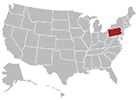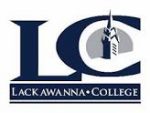
Like in most other states, Pennsylvania needs new home health aides due to an aging population, many of whom cannot perform daily functions.
In addition, the state needs motivated and well-prepared individuals to help others through basic home health aide training.
So many new healthcare workers are required in the state that lawmakers have increased regulations at the organizational level on behalf of direct healthcare workers, like home health aides.
If you’re interested in becoming a home health aide in Pennsylvania, keep reading to learn more about the field and the schools offering the training.
Page Navigation
- 5 Home Health Aide Schools in Pennsylvania
- Salary
- Frequently Asked Questions
- What is the difference between Pennsylvania home healthcare and home care agencies?
- What are the federal home health aide standards employees must meet?
- How can you become a home health aide in Pennsylvania?
- What does a Pennsylvania home health aide do?
- How much training is required for Pennsylvania home health aides?
5 Home Health Aide Schools in Pennsylvania
To be considered for employment, you must complete an accredited training program.
Some of the top accredited schools in the state include:
Community College of Beaver County

The Community College of Beaver County offers an associate of nursing, a two-year program that qualifies individuals to be home health aides, and many other positions within the medical industry.
Also, students can move into higher education in the medical field, such as a Bachelor of Science in nursing or higher.
GECAC Training Institute

The Greater Erie Community Action Committee works to help adults be placed into higher-skilled jobs.
These classes improve students’ knowledge of a specific topic and are free.
One of the programs the GECAC Training Institute offers is home health aide training, which helps students learn the fundamentals of home care while preparing them for their future careers.
Harrisburg Area Community College

The nurse’s aide certificate from Harrisburg Area Community College offers a 120-hour program approved by the Pennsylvania Department of Education.
The school labels this program as intense but satisfying as students can complete the program in as fast as 18 days, depending on the chosen schedule and classes.
Complete requirements are rigorous and include 100% attendance from orientation through graduation and a score of at least 75% on all exams.
Other requirements include a physical exam, background check, flu immunization, Tuberculosis test, and FBA clearances.
Lackawanna College

Lackawanna College has a nurse’s aide training program, which gives graduates a certificate in the field while fulfilling the required federal training hours.
With this degree, graduates can work in hospitals, hospices, home care, rehab centers, or long-term care facilities.
The program is cited as being highly affordable and taking 128 hours to complete.
In addition, students learn about restorative care, behavioral health, safety and emergency procedures, residents’ rights, communication, and infection control measures.
P&A Nurse Aide Training

Prism Health Aide training offers hands-on training with small class sizes taught by experienced industry professionals.
The nurse’s aide training program provides the basic educational background to allow graduates to hit the ground running with their careers.
This quick program places like-minded individuals together to maximize the efficiency of classes and knowledge transfer.
Home Health Aide Schools in Pennsylvania – Summary Table
Top 5 Schools in Pennsylvania
| School Name | Address |
|---|---|
| Community College of Beaver County | Maintenance Center, 1 Campus Dr, Monaca, PA 15061 |
| GECAC Training Institute | 18 W 9th St, Erie, PA 16501 |
| Harrisburg Area Community College | 1 HACC Dr, Harrisburg, PA 17110 |
| Lackawanna College | 501 Vine St, Scranton, PA 18509 |
| Prism Health Aide Training | 8040 Roosevelt Blvd 3rd floor, Philadelphia, PA 19152 |
Salary
The median annual home health aide salary in the U.S. is $27,500, ranging from $23,800 to $33,300.
The median home health aide salary in Pennsylvania is $29,500, ranging from $25,500 to $35,600.
Annual Salary Range:Average Salary of Home Health Aides in Pennsylvania
| City Name | Salary |
|---|---|
| Philadelphia | $29,515 |
| Pittsburgh | $27,768 |
| Erie | $25,451 |
| Reading | $27,409 |
| Altoona | $25,955 |
| Scranton | $25,431 |
| Bethlehem | $27,768 |
| Doylestown | $29,685 |
| Easton | $27,724 |
| Marion | $26,630 |
Regional Salary in Pennsylvania
| Region | Employed | Avg. Annual Salary | Avg. Hourly Pay | Top 10% Annual Salary | Bottom 10% Annual Salary |
|---|---|---|---|---|---|
| Allentown-Bethlehem-Easton, PA-NJ | 11,120 | $31,690 | $15.24 | $38,440 | $26,180 |
| Altoona, PA | 1,720 | $30,530 | $14.68 | $38,180 | $23,360 |
| Chambersburg, PA | 1,180 | $31,720 | $15.25 | $38,430 | $22,780 |
| Erie, PA | 6,550 | $29,070 | $13.98 | $35,790 | $22,640 |
| Gettysburg, PA | 330 | $34,090 | $16.39 | $41,990 | $26,720 |
| Harrisburg-Carlisle, PA | 11,900 | $29,900 | $14.38 | $36,170 | $24,120 |
| Johnstown, PA | 1,790 | $29,400 | $14.14 | $36,150 | $22,740 |
| Lancaster, PA | 6,420 | $31,190 | $14.99 | $37,740 | $25,990 |
| Lebanon, PA | 890 | $31,890 | $15.33 | $43,450 | $23,600 |
| Philadelphia-Camden-Wilmington, PA-NJ-DE-MD | 142,460 | $32,020 | $15.40 | $39,330 | $27,440 |
| Pittsburgh, PA | 35,740 | $31,040 | $14.92 | $37,740 | $23,890 |
| Reading, PA | 5,960 | $31,530 | $15.16 | $37,330 | $26,220 |
| Scranton--Wilkes-Barre, PA | 9,340 | $30,250 | $14.54 | $37,870 | $23,110 |
| State College, PA | 1,370 | $31,280 | $15.04 | $37,400 | $22,910 |
| Williamsport, PA | 1,620 | $30,690 | $14.75 | $37,440 | $24,670 |
| York-Hanover, PA | 3,520 | $33,250 | $15.98 | $39,730 | $26,510 |
* Employment conditions in your area may vary.
Frequently Asked Questions
What is the difference between Pennsylvania home healthcare and home care agencies?
Many home care organizations and agencies exist where a home health aide can find employment.
These agencies offer skilled nursing services from trained professionals.
While home healthcare agencies aren’t required to employ home health aides, they are common.
A home care agency offers personal care services for the ill, elderly, and disabled, with Medicaid being a major funder.
Some pay privately for home health aide services their loved one may require.
What are the federal home health aide standards employees must meet?
An individual can only provide direct healthcare services by meeting Certified Nurse Aide requirements for a federally funded program like the Medicaid waiver program, completing an accredited training program, and meeting other federal requirements for home health aides.
How can you become a home health aide in Pennsylvania?
Three paths to becoming a home health aide in Pennsylvania exist.
First, completing a home health aide training program gives you the 75 training hours required to practice.
Numerous programs are available at institutions in major cities like Philadelphia, Pittsburgh, and Scranton.
Second, earning a nurse aide certification gives you the training and knowledge required to be a home health aide.
Third, you can work through a home health agency, which requires passing a competency exam that meets Pennsylvania requirements.
This is the easiest and fastest way to jump right into your career.
What does a Pennsylvania home health aide do?
While home health aides have various responsibilities, some fundamental tasks include cooking and feeding patients meals from a doctor’s meal plan, brushing, toileting, bathing patients, and performing standard housework like vacuuming, laundry, and cleaning.
Also, a home health aide will drive the patient to errands or appointments and help them safely move around their residence.
Additionally, aides will manage the patient’s medication schedule while monitoring wellness and overall health.
How much training is required for Pennsylvania home health aides?
Home health aides in Medicare-certified locations must complete at least 75 educational hours, 16 of which must be clinical.
The curriculum must include hygiene- and grooming-related topics.
Other courses must include fluid intake and nutrition, reporting body function changes, taking and recording vitals, maintaining a clean and healthy environment, assisting clients with physical transportation, and respecting clients’ needs.




